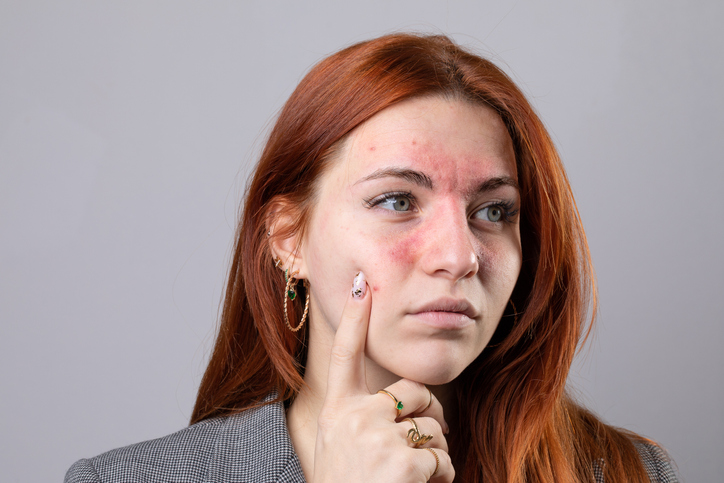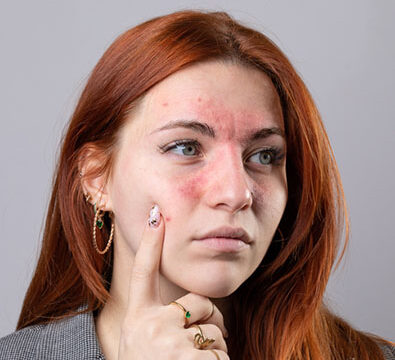
Alcoholic Nose: Why It Appears & How To Treat It
A large, red nose has long been an image associated with alcohol dependency. If you’ve been seeing signs of an ‘alcoholic nose’ in the mirror, you may be looking to learn more about the condition. Does alcohol really cause it? Are there treatments available?
Table of Contents:
What is an ‘alcoholic nose’ and what causes it to appear?
The medical term for what we know as ‘alcoholic nose’ is rhinophyma. It is a type of rosacea, a skin disorder that causes redness, inflammation, and small, pus-filled bumps typically concentrated in the cheeks, nose, and chin. Rosacea is a chronic condition that tends to flare and go into remission; however those with Rhinophyma may find that their nose may continue to grow.
While the exact cause of rhinophyma is unknown, evidence suggests there is a genetic and ethnic predisposition, typically running in families of fair-skinned, European descent.
Symptoms are most common in Caucasian men aged 50-70. Rosacea flare-ups can be caused by a number of factors other than alcohol, like sunlight, heat, environmental stress, and a number of foods, skincare products, and even exercise.
However, alcohol may be more likely than those factors to cause outbreaks, with some patients experiencing outbreaks caused by just one alcoholic drink. Fortunately, limiting alcohol consumption due to rosacea can reduce flare-ups.
Symptoms of Rhinophyma include:
- Enlarged pores, scarring, or pitting
- Dry or oily skin
- Red or purplish discoloration of skin on nose
- Thickened skin or lumps on the nose (caused by growth of extra connective tissue)
- Other rosacea symptoms like red patches, visible blood vessels in the face, and pimple-like bumps that may flare and subside

Available treatments
There are a few options to treat rhinophyma depending on how far it has progressed
Medication
Early intervention with medication can have significant benefits, though medication is less effective in more severe cases.
Medications may be oral or topical antibiotics designed to treat the underlying rosacea and reduce redness and inflammation.
You may also be prescribed moisturizers or medications to keep skin moisturized and prevent oil buildup.

Surgery
There are also a few different surgical procedures that often have the best outcomes for those suffering with rhinophyma.
It’s important to get procedures done as early as possible to avoid permanent scarring or disfigurement. Surgical options include:
- Cryosurgery: This process freezes and eliminates unwanted growths
- Laser Resurfacing: Promotes faster healing than procedures involving a scalpel in certain cases
- Sharp Excision: A surgical procedure where excess tissue is cut away with a scalpel
- Dermabrasion: A minimally invasive, non-surgical procedure that removes unwanted layers of skin via exfoliation
Changes in lifestyle
You can also take steps to manage symptoms through lifestyle changes. Stay away from the following to avoid triggering flare-ups.
- Extreme temperatures and sunlight
- Alcohol, tobacco, and caffeine
- Spicy or highly acidic foods
- Rubbing your face
Alcohol Dependency Taking A Toll On Your Looks? Elite Home Detox Can Help!
If you are having difficulty reducing your alcohol intake to avoid rosacea flare-ups and are worried about developing an alcoholic nose, consider reaching out to Elite Home Detox. We work with you to build a custom plan towards sobriety, rather than the “one-size-fits-all” plans found in most clinic environments.
We offer medically-managed detox, counseling services for you and your family, aftercare case management, and recovery-focused medical services all in the comfort of your home. If you believe a loved one needs help with alcohol dependency, our Intervention specialists can help you and the rest of your loved one’s support network to motivate your loved one to accept help.
We know you probably have a lot of questions, and we’re ready to answer them. Call or click the button below to make an appointment today!


